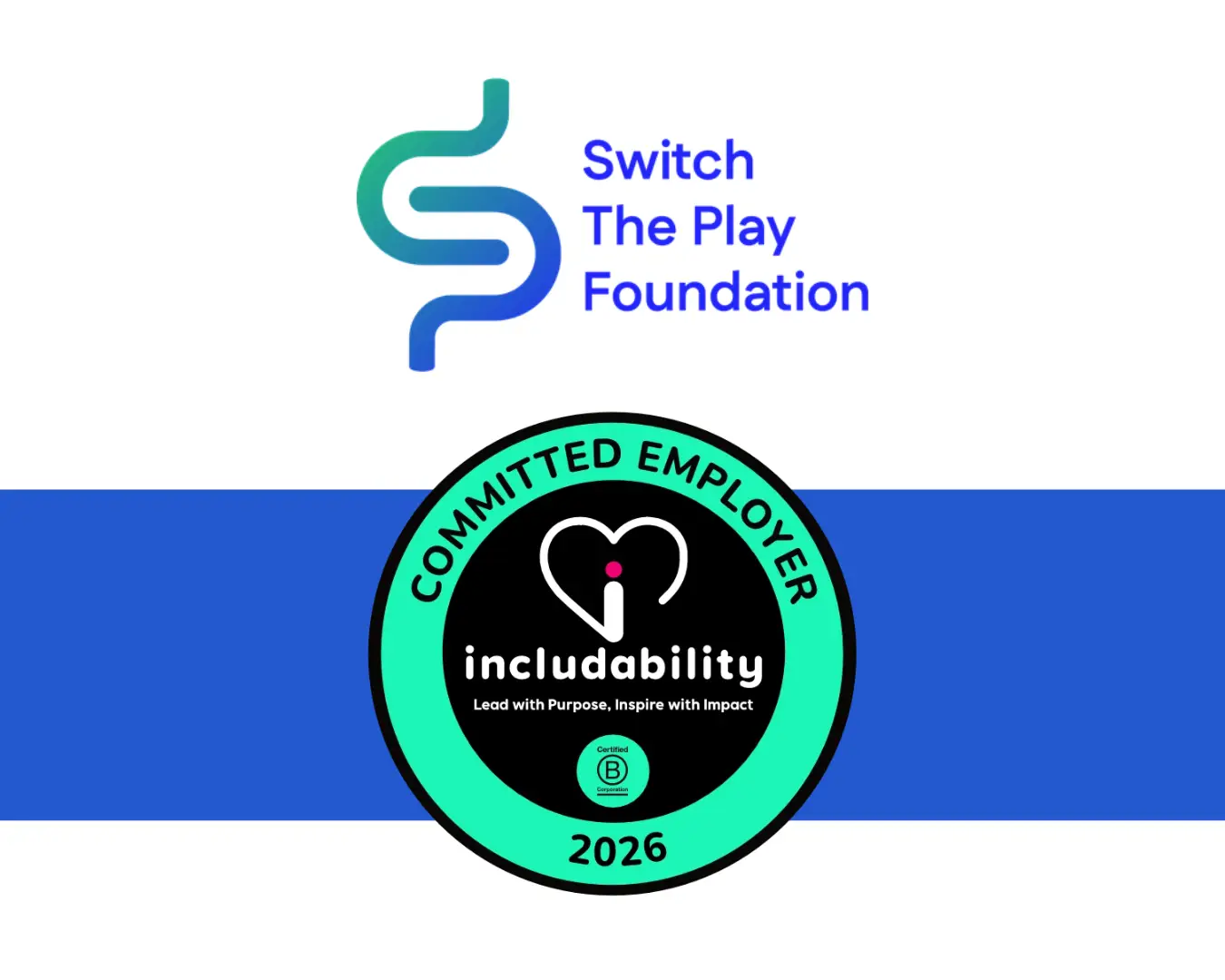Q&A with James Coppinger of ProMindset
James Coppinger has spent the last 23 years as a professional footballer. Recently retired, he has been transitioning into the business world for the last six years as the founder of Pro Mindset

We talk to ProMindset Founder James Coppinger

ProMindset Founder James Coppinger
Who is James Coppinger?
James Coppinger has spent the last 23 years as a professional footballer. Recently retired, he has been transitioning into the business world for the last six years as the founder of Pro Mindset, a mental wellbeing service in which James offers fellow players and athletes mental resilience coaching.
James grew up playing football, but although he loved playing as child, he never envisaged himself as a professional footballer at that age. He never attended any football academies or school of excellence, but still managed to get try outs with several clubs in the North East, including a Premier League club.
Despite some initial rejections, he was offered a YTS (Youth Training Scheme) at League Two side, Darlington at the age of 16. Six months later, he represented his country at under-18 level in the European Championships.
This led to his first professional contract for Newcastle United under Sir Kenny Dalglish for nearly £2 million. The next five years held some of his highest and lowest points of his playing career. At 19, he made his Premier League debut under Sir Bobby Robson and was relegated from the professional leagues with Exeter at age 21. He went from Sunday League to Premier League, to non-league in that short time which, he says, was devastating for his mental health.
It was at Exeter where he met Terry Gormley, a performance coach working with professional sports players, and his fortunes began to turn around. It was then he signed for Doncaster Rovers where he been ever since, playing 17 seasons and making 695 appearances.
In that time, he experienced the highs of his career of three promotions, winning at Wembley and at the Millennium Stadium, and scoring the winning goal in the last game of the season to win the championship in the 2012-13 season.
With an average career span of 8-10 years, James’ 23 years as a professional footballer (24 years overall) has been an achievement. He says his career longevity has been down to his mentality in the way his thought processes work and how he develops strategies.
Now at age 40, he is passing on his knowledge of mental resilience and keeping up consistent performances to the next generation of footballers and even to corporations outside of sport.

Where did the concept of Pro Mindset come from?
We launched Pro Mindset six years ago and it was based around my experiences with Terry Gormley, whom I met at 22. After getting relegated out of the football league and had a really tough time at Exeter, he transformed my life completely.
I have been doing Personal Development for the last 17 years and I now work and mentor players over the last six years. Pro Mindset creates a better understanding of what an all-round performance looks like. I break it down into four categories:
- Physical performance, which in football is speed, strength and Fitness. At a football club, you have a nutritionist, a sport scientist, and a fitness coach.
- Tactical thinking.
- Technical training, both of which is what the coaches and the managers deal with.
- Mental performance, the biggest one. Unfortunately, within clubs, there is not many people doing it or understand how to get better at it.
A lot of people don't understand that you can improve and get better at it and work at it. Pro Mindset is about creating awareness and understanding of what it is, what it looks like and how you can improve.
I put a diagram together with mental performance across the bottom. It is the foundation for the others. If you are not thinking in the right way, then you're never going to maximise your potential in the physical, the tactical and technical.
You have to be thinking in the right way. Every single day, you have an opportunity to improve your mental state. There are so many different facets to it, but it is understanding that this is a thing, and you can control it. But a lot of players let other things control their mindset.
I see so many players that struggle in this department and very little been done in helping. The inspiration was, there is a niche, and a huge opportunity for somebody to fill in terms of creating the understanding and helping players. Players that are good technically, that are good tactically and physically, but they often can't deal with setbacks. They can't deal with disappointments or deal with Success. They cannot deal with all the things that are getting thrown at them.
Can you help other types of athletes and sports persons?
It can be very similar to all-around thinking. Mental performance starts with how you think. I talk about how you think dictates how you feel, how you feel dictates how you act and then how you act determines your results. That simple equation can get passed through all sports and all walks of life.
I specialise in football because I've been a footballer for 24 years and It's easily relatable to football players. Players can work with psychologists from different fields, from different sports and different backgrounds but it's really difficult to relate to them.
Can people build healthier routines at work? What can someone do to maintain their focus and mental stamina?
Every single person is different and is on their own journey. The way you think is different to the way I think. The way in which you were conditioned to think relates to the way you were brought up. What is right for you might not necessarily be right for me.
It can be hard to understand where people are at, and that's part of my job as a mentor to work that out. One hundred percent people can change, but it starts with understanding what it is they want to change. Having a clear focus and direction of where they want to be and where they want to go.
If that is a work environment, that means, setting goals, setting small, short-term targets then setting big goals. I work on with footballers over one season, five seasons, ten seasons. Ask ‘where do you see yourself in 10 years?’ and then work back to five years and then to one year. Having something to work towards is massive.
It comes from the individual, however. It's understanding that it's possible then taking major action. It's alright talking about it and listening to podcasts and reading books, but you have to take action. You have to take yourself out your comfort zone and do all of these things to get to where you want. There are so many different things that play a part in that, and the biggest step is taking action.
Are there general routines that would help?
There are general routines, but when I am mentoring players and I'm working with individuals, whether they are age 16 or 35. They're at different ends of the spectrum, they're starting out at 16 and at 35 years, you've almost been conditioned to think in a certain way. It's undoing and creating different strategies. Understanding what a strategy is and how you create your own.
Something that works for my own mentality is driving out of the training ground and switching off, for example. I'm leaving my footballing life at the training ground and then becoming James Coppinger the dad, the husband, the friend. When I come back into the training ground, I become James Coppinger, the player.
It’s about making yourself feel better, all about making yourself feel happier and making yourself be more successful, if that's what you want to be. Everybody is striving for success and happiness. We are all striving for the same thing, it's how you go about it.
The biggest unhealthy routine people keep doing is the same thing over and over again and expecting a different result. It's quite cliched, but it's something that I was doing. I kept doing the same thing and thinking the same way, thinking ‘I hope this changes’ and it never did. I started thinking differently and started doing things differently, then I started getting different results. That is a good strategy for somebody to start with.

Does a mental training routine change when comparing a physical activity to a non-physical activity?
The intensity is totally different, but the way I approach things is very much the same in terms of preparation and mentality. I transitioned into business, transitioned into doing things differently like making notes and writing things down. I'm stepping out my comfort zone and doing something that I hadn't done for 15 years. It's finding a way of making this work for me, speaking to different people, speaking to people who are better than me and then doing what I wanted to do.
Modelling excellence was important for me. Understanding that I'm not brilliant at everything and that there's people out there that are a lot better at different things than me and using them and drawing upon their experiences.
Can someone's mental state affect the work output?
100% yes. I don't know how it can't. As a leader, as a manager, as a coach, to understand the players and understanding the person underneath. Ultimately, professional footballers and professional athletes are human beings first. And if you're not thinking the right way, then you're never going to be able to fulfil your potential.
You have to find a way of getting into that state every single day. For the past 19 seasons, since age 21 to 40, I've played every single season, 42 games on average. That's because, every single day, I get into the right mental state and understand what it takes to produce consistent performances every single week. It's no coincidence that has happened and that is down to the way I think. If you're not thinking in the right way, whether it be at work or whether it be on a football pitch or a training pitch, it's going to affect your performance.
Can having greater self-awareness affect Professional interactions?
Self-awareness is part of a professional mindset. Being a professional footballer is the target but having a professional mindset comes hand in hand with success. You have to think in the right way because if you don't, you're never going to get the best out of yourself, and self-awareness is one of the big factors in that.
Understanding where you're at, what you need, being self-reflective, being self-critical, being able to take criticism, having a growth mindset. All these things are absolutely vital. It is a huge part of mental performance and something you can improve on. Not everybody is self-aware, not everybody who works with me knows where they are at and what they need. It takes time to create that awareness and to know what self-awareness looks like and recognise its importance.
There are a lot of egos in football. You need an ego to play football to some extent, but you can't let your ego effect how you think about yourself.
There is a breakthrough moment with a lot of people. That is why my programmes last predominantly the season. If I do one session with somebody, it is really difficult to get what I want across. They might take something from it, but consistency is the key for understanding and creating that communication. I'm starting to understand the best ways of doing it. When you are speaking about something that is invisible, like about mental strength, mental resilience, and you can't actually see how they're feeling or what they're doing, then you have to communicate in a way that gets the buy-in, that appeals to them and draws them in. The way that makes them think “Wow. I want to know more about this. I want to know how to do this”.
Over a longer period, you end up getting the buy-in and when they see differences in their results, the way they behave, the way people talk about them. Then you have success.
What would you recommend to young people to improve their mental Focus? Is it more difficult for younger people to look past their ego?
Between 14 and 16 can be where it starts. My son is 14 now and he's just beginning to develop and change the way he thinks. At 14, you can start basic techniques like growth and fixed mindset, in terms of showing them what it looks like. For example, when somebody gives you feedback, do you take it personally, or do you think, ‘that's really good I can improve, and I can get better at that’ to find out where he is at.
For a lot of young individuals, they take it personally and they don't want to know anything. Explaining to them and making them understand that it's all right to make a mistake. And if you make a mistake, that doesn't mean you're a failure and that you're never going to be able to do it.
14 to 16 is a pivotal age where you can start to create that understanding. Then 16 plus is where you can start building on that. But I genuinely do not think it is harder. Over time it could get easier with what is available. I'm not the only one that's working on this, but people have to be aware that it's out there and mental training is a huge part of being successful.
Do you have any recommendations to sporting establishments to better look after the players or athletes?
People are human beings before they are footballers and it's absolutely paramount that football clubs understand that. All the money that's involved in elite sport, especially within the Premier League, they cannot afford to forget that.
What I do is based around performance. You're trying to create an understanding of, if you don't get selected in the team, if you're out with an injury, if you lose a game, It's not the end of the world and the next day you have an opportunity to improve on that and build from there.
For football clubs and corporations, wellbeing is an important part of that. If you can get people thinking in the right way and make them feel happy, you're going to get better results. It makes sense to employ people in that department. I have just gone into a new role at Doncaster Rovers working with the academy and with the first team specifically for that reason. It's done in Australia and it's huge in America. It's happening in other countries, why shouldn't it be part of the game in this country?
How important is it to look after your mental health and overall wellbeing?
It's the biggest thing in life. There has been a huge turnaround over the last 10-15 years with what mental health looks like. People would not have heard about mental health before then. It isn't something that you should be doing when you're feeling down or feeling sad, this is something that you should be maintaining every single day.
Little wins get you big results. I've been doing this since I was 21 years old. I'm 40 now and people start to look at me and go, ‘he's doing really well’ and ‘how is he doing this?’. It is a build-up of every day of understanding that I can improve as a person. I believe in progress as human beings, we love to make progress.
If you progress every day in a small way, you're going to feel better about yourself and you're going to feel like you've achieved something. It might be something tiny, but each day if you build on that; in a year’s time, in three years, in ten years, you're going to be somewhere where you want to be.
Mental health is there every day and doing something about it every day is what it should be about. That's how people should live their lives, every day is an opportunity to improve.
Image Credits: James Coppinger
Related resources & events
Sign up for our newsletters
We have an employer and Job seeker newsletter giving you all the latest information in one easy and digestible email. Sign up today for news and job advice straight to your inbox.








